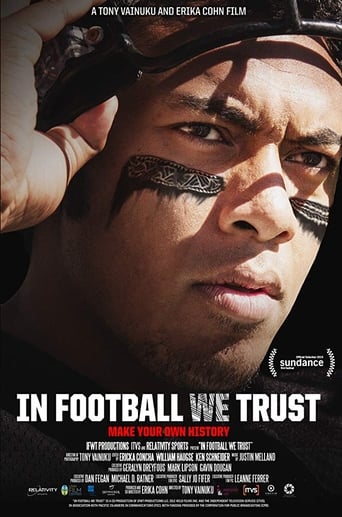Sarita Rafferty
There are moments that feel comical, some horrific, and some downright inspiring but the tonal shifts hardly matter as the end results come to a film that's perfect for this time.
Red Haircrow
Family means a lot to Polynesian cultures, but sometimes family can feel like a blessing and a curse. Especially under these circumstances, with so much at stake for adolescents still prone to mistakes in judgment, who may make bad choices but have so much hope and responsibility on their shoulders.I've not been an American football watcher for well over a decade, though I used to follow it closely. I listed away because it began to feel so contrived, just about the money, about team names, not the individuals. Or rather too much about the individual: the showboating, the attitudes and self-entitlement. Although it's unlikely I'll ever go back to actively watching, this film inspired me to again selectively follow the careers of some players because it highlighted their drive, desire, and love for the game, their determination to succeed not just for themselves, but to support their communities. It also showed how the pressure to succeed, both from schools, teams and their families, can bring push them to breaking point.The four players have great support from their Islander roots, mothers strongly backing their sons, especially in that most of them have come from very humble, even desperate conditions: gang violence, personal losses. Families didn't have money to see their sons play, but traded work for tickets, cleaning up whole stadiums each week. "We don't have the money," one mother said, "but we have the heart." The film touches on several subjects interrelated to life as a football player of Pacific Islander descent such as interracial dating, differences of religious beliefs and wanting to move beyond them. Others are the challenges of finally getting money above just survival level and how to navigate the colleges and leagues were exploitation can be an issue. It was filmed over four years, progressively showing how the four players improve, change, in possible good or bad ways, and their motivations, desires, fears, angers, and what is most important to them: Family.In a straightforward way, "In Football We Trust" shows how complicated life can be, especially as immigrants from a very different culture coming to live in communities radically different than back home just to play football. Stereotyping, culture clash, the pressure to win at any cost, not just for themselves but for their families can be at times overwhelming and occasionally rewarding. A solid documentary for those interested in the culture and topic.

